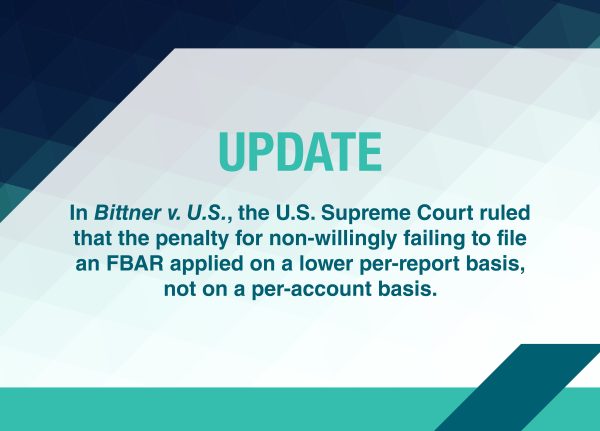Have you bought stock in a company that later dropped in value? While you may prefer to forget such an ill-fated investment, at least you can claim a capital loss deduction on your tax return. Here are the rules that apply when a stock you own is sold at a loss or becomes completely worthless. […]
Those of us living and working in Los Angeles are fortunate to have access to an impressive and diverse selection of financial professionals. Congratulations, Alex Chernyak and Kami Cohen, on being honored by the Los Angeles Business Journal as Leaders of Influence: Minority CPAs!
Organizations that understand how auditors verify account balances and transactions can minimize disruptions during audit fieldwork and maximize the effectiveness of financial statement audits. Here’s a summary of the types of “substantive evidence” auditors gather to help them form opinions regarding your financial statements. Original source documents Auditors can verify an account balance or record […]
The IRS recently finalized regulations that substantially expand mandatory electronic filing (e-filing) of certain information returns. The regulations were proposed in 2021 to implement statutory changes made under the Taxpayer First Act of 2019. Generally, they establish lower thresholds for required e-filing of the following returns related to employee benefit plans: Form 1094 Series; Forms […]
The U.S. Supreme Court recently weighed in on an issue regarding a provision of the Bank Secrecy Act (BSA) that has split two federal courts of appeal. Its 5-4 ruling in Bittner v. U.S. is welcome news for U.S. residents who “non-willfully” violate the law’s requirements for the reporting of certain foreign bank and financial accounts […]
Fair market value is the appropriate standard of value in most business valuation assignments. But when valuing an asset for financial reporting purposes, fair value is generally used. Here’s an overview of what fair value is and how it differs from fair market value. Eyes on GAAP The terms “fair value” and “fair market value” […]
You generally must pay federal tax on all income you receive but there are some exceptions when you can exclude it. For example, compensatory awards and judgments for “personal physical injuries or physical sickness” are free from federal income tax under the tax code. This includes amounts received in a lawsuit or a settlement and […]
If you made gifts last year you may be wondering if you need to file a gift tax return. The short answer: There are many situations when it’s necessary (or desirable) to file Form 709 — “United States Gift (and Generation-Skipping Transfer) Tax Return” — even if you’re not liable for any gift tax. Let’s […]
If you were told someone earns more than $200,000 annually, you might assume the person is a salaried employee who’s ineligible for overtime pay. However, as demonstrated in the recent U.S. Supreme Court case of Helix Energy Solutions Group, Inc. v. Hewitt, this isn’t always a safe assumption. The FLSA rules Under the Fair Labor […]
Late in 2022, the IRS released final regulations addressing extended deadlines for certain information-reporting requirements of the Affordable Care Act (ACA). The final regs generally apply to calendar years beginning after December 31, 2021. If your organization is an applicable large employer (ALE) under the ACA, or could be in the immediate years ahead, now’s a […]
Revenue Ruling 59-60 is a landmark piece of IRS guidance that outlines the factors to consider when estimating the fair market value of a private business. Here’s an overview of those factors, along with other hidden details found in the ruling’s fine print. 8-factor approach Revenue Ruling 59-60 says that business valuation is an inexact […]
If you’re getting ready to file your 2022 tax return, and your tax bill is higher than you’d like, there may still be an opportunity to lower it. If you’re eligible, you can make a deductible contribution to a traditional IRA right up until this year’s April 18 filing deadline and benefit from the tax […]












